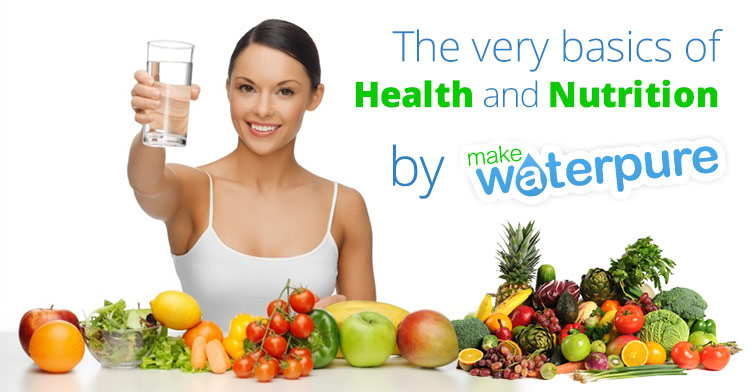
When it comes to health and nutrition, there are a million different opinions surrounding what you should and shouldn’t be doing. What you should avoid and what you should consume in great amounts. Despite the multitude of different wise words, it’s simply a case of sticking to a few basics in order to remain fit and healthy. Here are the basics of health and nutrition, including a few myth busters to help you on your way.
Not all calories are created absolutely equal.
When it comes to weight loss, one of the biggest myths to date is that a calorie is a calorie and weight maintenance is a simple as counting your calories in and calories out. A great example of this would be protein, carbohydrates and fat. Both protein and carbs contain four calories per gram with fat containing a whopping nine calories per gram.
This would lead most to believe that fat must be avoided. If it were a simple case of macronutrients all doing exactly the same thing within our bodies then it would of course be a logical thought however the human body treats macronutrients differently and knowing this is the key to finally realising that low fat diets are only feeding the obesity epidemic we’re inevitably suffering from.
Fat isn’t the enemy.
Though it’s been given quite a bad name for the last few decades, fat isn’t necessarily the cause of all problems we see today. This is usually the hardest thing for people to believe however for optimal health, you must learn to eat and in fact love the healthy fats that are actually so vital to your body and its proper function. So what are healthy fats exactly? Well, they aren’t hydrogenated or processed fats such as vegetable oil or sunflower oil.
Saturated fats on the other hand are a must and the main source of these good fats come from meats that are 100% grass fed. Oily fish is another great example of food containing healthy fats such as omega 3 fatty acids along with omega 6 fatty acids.
Grains are very bad.
This may go against everything you’ve ever been told when it comes to nutrition but grains aren’t the healthiest of foods and aren’t actually necessary. Grains and their subsequent by-products fit into the category of carbohydrates and it’s these carbohydrates that cause an insulin response within the body. Any carbs that aren’t used however are immediately converted into fat for storage so in effect, grains can make you fat.
This is just one of the reasons that low fat diets don’t work and often cause unwanted weight gain. When you look at the bigger picture of human evolution, we’ve only been eating grains for a relatively short space of time and our bodies just aren’t adjusted to them.
Avoid toxins.
At first glance this one can seem pretty easy and whilst our ancestors only had to worry about toxins from plants and animals, we sadly face them every single day in our foods, personal care and even tap water.
Avoiding all forms of toxins isn’t exactly realistic however we can minimise our exposure by skipping that morning coffee for example.
Drink pure water.
Last but most certainly not least we advise drinking the purest water you can find. Our bodies are made up of around 70% water with our muscles containing around 75% water so it’s obvious we need it. The question is, how much and what kind? Here at Make Water Pure we advise drinking at least three litres of pure distilled water a day with the first litre consumed as soon as possible when you wake in order to replenish the fluid you’ve lost overnight. It’s also advisable to check your urine when you visit the bathroom.
Your urine should be almost clear, indicating that you’re well hydrated. The darker it is however, the more dehydrated your body is. A good way to remember to consume enough water is to put back in what you excrete out. There are of course a number of theories as to exactly how much water your body should consume but all in all, your body will let you know.
When it comes to fluids, it’s as simple as drinking water when you’re thirsty however when you’re eating foods that aren’t necessarily good for your body, your body’s ability to regulate thirst can be slightly messed up and many times when we think we’re hungry, we’re actually thirsty. For this reason alone we suggest consuming a large glass of water if you feel ‘hungry’ between meals as this is most likely what your body actually needs.
The type of water you consume however is also vitally important. You may think your tap water is perfectly safe to drink but this couldn’t be further from the truth. Pumped full of harmful toxins and chemicals such as chlorine, aluminum sulphate and even fluoride, it means you’re actually consuming a number of toxins and undesirables with every single mouthful of tap water. This can all be avoided by drinking pure distilled water.
Drinking distilled water will not only keep you hydrated but will also help flush out any existing toxins that may already be sitting within your body. Without drinking distilled water, you will continually consume toxins and therefore prevent your body from reaching its full potential in terms of health.
Here at Make Water Pure, our counter top water distillers can give you twenty-four hour access to pure, clean distilled water for as little as 9p per litre. With the ability to make four litres of water in less than three hours, our quality distillers can make your road to a healthy body much easier. Reaching and maintaining that healthy body is actually quite easy once you realise exactly what your body needs so do the best you can and give it distilled water.


